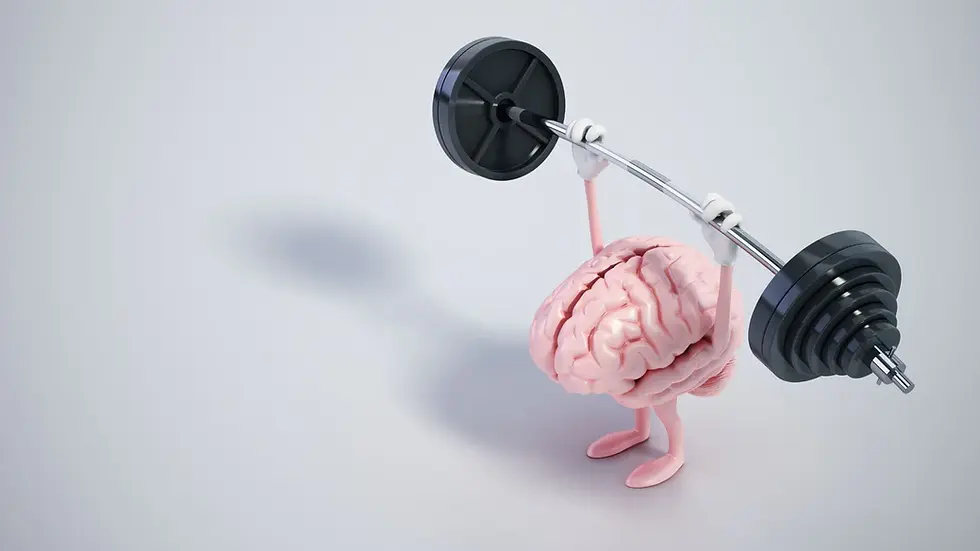The boy who refused to be proud of himself
- Rachel Langford

- Jun 21, 2021
- 3 min read
Updated: Nov 14, 2024
Our ability to recognise our achievements and celebrate them is related to the brain's ability to adjust to changing circumstances, process information in context, and process failure or imperfection in a healthier way.

One of my little (and very sweet) clients is a boy, 8 years old with ASD. During our brain training sessions, where we teach the brain how to change and adapt the patterns that are underlying the different symptoms of Autism, I usually show the children the graph of their brain performance after every exercise. I ask them how they think they did, what was easy for the brain and what was harder. I point out their success to them.
This week, the boy's father told me that his grades in class have improved, going up from 1.5 (out of 10) to 6.5, that he is learning for longer periods with full focus, and that he is less aggressive with his siblings when he gets upset. Instead, he uses more verbal ways to communicate his emotions.
I told the boy that I am very proud of him and asked him - are you proud of yourself?
He said NO.
Not for the first time. He consciously refuses to be proud of himself for his improvements and achievements in school, at home or in clinic.
So what?
What's the big deal about being proud of myself?
The ability to use positive affirmations towards ourselves is a very important skills we want to teach our brain to do. It reflects on how we process the world around us, accept mistakes of ourselves or others, adjust to new and changing situations and more.
Often children with ASD show perfectionism as one of the behavioural aspects that relates to their tendency to being stuck in the detail without seeing the context. They show extremely high ability to see and remember details and less ability to see the full picture. It has been shown that the right side of their brain (which helps the brain to put things in context, consciously process my emotions, and choose actions based on it) is underdeveloped compared to the left side (detail processing).
Positive affirmations, or telling ,myself that I am proud of my achievement, as one example, has been shown by research to support those brain functions that help us adapt better, which is what many times children with Autism find hard to do. If you change their plan, it feels to them like it is the end of the world. If something is not done they way they think it should be, there is no other way to do it. They protest, they get aggressive, they get frustrated.
Many of them, like this little client of mine, are in an unforgiving state towards themselves as well as towards everyone around them. If it is not perfect, it doesn't count. So why should I be proud of myself?
The ability to acknowledge and celebrate the little steps of success also reflects on the sensory processing aspect that is challenging for ASD children and adults - if my brain cannot adapt to my environment in a flexible way, every little input (sound, noise, touch, textures) is too overwhelming and can cause an overwhelming emotional response.
The Neuroscience of positive affirmation
MRI evidence suggesting that certain neural pathways are increased when people practice self-affirmation tasks (Cascio et al., 2016). The brain regions most prominently involved in reward and positive valuation includes the ventral striatum (VS) and ventral medial prefrontal cortex. When being actively engaged with celebrating one's own worth, success or achievements, the brain's emotional processing becomes more resilient to the effect of negative emotions. In other words - if one thing goes wrong, it does not feel like it is the end of the world.
Neural mechanisms of self-affirmation’s stress buffering effects
Self-affirmation can buffer stress responses across different context. In a study published in Social Cognitive and Affective Neuroscience, Volume 15, Issue 10, October 2020, self-affirmation led to lower self-reported stress and improved performance. The brain scans in the study showed increased activity in reward-related neural regions which are also involved in reducing neurobiological and behavioural responses to stress.
You’ve been criticising yourself for years and it hasn’t worked. Try approving of yourself and see what happens.
Louise Hay









Comments